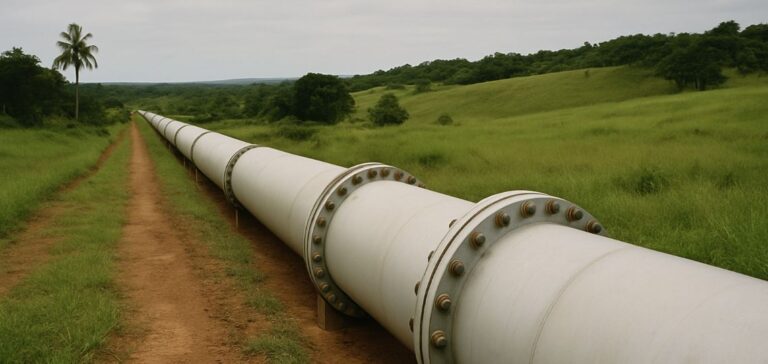Up to 3.5 million cubic metres per day of natural gas could move from long-term contracts to the spot market in Brazil in 2025, according to a study published by consultancy firm Wood Mackenzie. This shift results from strategic use of Take-or-Pay (ToP) flexibility clauses, enabling distributors to capture pricing opportunities ranging between $5.9 and $10.5 per million British thermal units (mmbtu).
This change could redefine contractual relations in Brazil’s gas sector, particularly for Local Distribution Companies (LDCs). The spot market, once seen as an opportunistic tool, is now being used as a viable alternative to firm commitments, according to Javier Toro, Research Director for Gas and Power in the Southern Cone at Wood Mackenzie.
A growing spot market
In 2024, more than 60 contracts were signed on the spot market, amounting to 40 million cubic metres, mostly in the Northeast region. These transactions were mainly concluded during the last week of each month, accounting for 41% of monthly sales. Companies Copergás, Cegás, Bahiagás and SCGás alone accounted for over 95% of traded volumes.
This repositioning stems from stagnant LDC demand, a gradual shift of large industrial consumers to the free market, and the emergence of new trading platforms. Contractual clauses between ToP volumes and Daily Contracted Quantity (DCQ) now allow spot volumes to be integrated without penalty.
Pricing changes and competitive pressure
The report states that Petróleo Brasileiro S.A. (Petrobras), currently supplying 70% of LDC gas, is adjusting its pricing formulas. Prices applied to volumes above ToP thresholds could drop from 11.7% to 10% of Brent value. This change narrows the gap with spot market pricing, even though spot remains competitive amid global Brent volatility and growing pressure from new suppliers.
Greater supply diversity, along with the entrance of new market players, has increased liquidity and introduced alternative commercial models. “If current conditions persist, 2025 could mark a structural turning point in how Brazilian LDCs manage their portfolios,” said Toro.






















